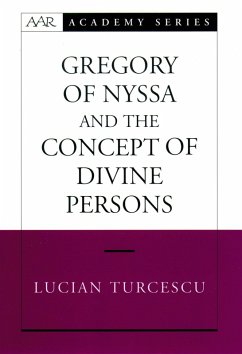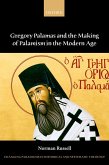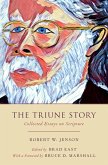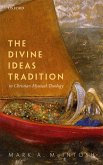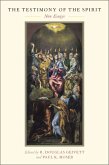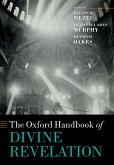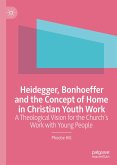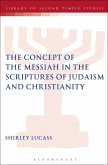The concept of personhood is central to a wide range of contemporary issues, ranging from reproductive rights to the death penalty and euthanasia. We may think that the concept of person is a modern development. In fact, however, this idea does not originate with our discovery of human rights, consciousness, and individuality. In this study Lucian Turcescu shows that the fourth-century theologian Gregory of Nyssa developed a very sophisticated concept of the person in the context of his attempts to clarify the paradox of the Trinity-a single God comprising three distinct persons. Turcescu offers the first in-depth analysis of Gregory's writings about the divine persons. He shows that Gregory understood personhood as characterized by uniqueness, relationality, and freedom. He reasoned that the three persons of the Trinity have distinctive properties that make them individuals, that is, capable of being enumerated and circumscribed. But this idea of individuation, inherited from the neo-Platonists, falls short of expressing a clear notion of personal uniqueness. By itself it would suggest that a person is merely a collection of properties. Gregory's great contribution was to perceive the importance of relationality to personhood. The three divine persons know and love each other, are in communion with each other, and freely act together in their common will. This understanding, argues Turcescu, adds up to a concept of personal uniqueness much like our modern one. Turcescu's work not only contributes to our knowledge of the history of Trinitarian theology but can be helpful to theologians who are dealing with issues in contemporary ethics.
Dieser Download kann aus rechtlichen Gründen nur mit Rechnungsadresse in A, B, BG, CY, CZ, D, DK, EW, E, FIN, F, GR, HR, H, IRL, I, LT, L, LR, M, NL, PL, P, R, S, SLO, SK ausgeliefert werden.

